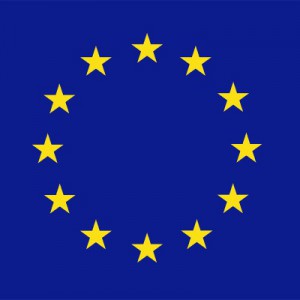EU Pressures Israelis, Palestinians to Resume Talks Article

BRUSSELS--The European Union, largely relegated to the sidelines during recent Middle East peace talks, sought to pressure Israelis and Palestinians to resume negotiations by deploying a combination of threats and incentives Monday.
EU foreign ministers gathered in Brussels warned Israel of potential consequences if it continues to expand settlements in the territories it captured in 1967.
"The European Union will continue to closely monitor the situation and its broader implications, and will act accordingly," the ministers said in a joint statement. That could refer, among other things, to a proposal that goods manufactured in the territories would have be identified as such rather than labeled "Made in Israel"--an idea Israel strongly opposes.
The foreign ministers also focused on the current reconciliation between Fatah, the main Palestinian faction, and Hamas, which is considered a terrorist organization by the EU and U.S. and doesn't recognize Israel's right to exist.
The diplomats said they support the notion of a Palestinian unity government, but only if it espouses nonviolence and respects Israel's right to exist. "The EU's engagement with a new Palestinian government will be based on its adherence to these policies and commitments," the statement said.
Israeli and the Palestinian leaders began their latest round of peace talks last summer, but the talks broke down in April amid mutual recriminations. Israel said it couldn't negotiate with a Palestinian government that includes Hamas, and Palestinian leaders criticized Israel's continued settlement expansion.
The talks are currently on a "pause." It isn't clear when or if they will resume.
The U.S., due to its international clout, brought the two sides together and coordinated the talks, yet Europe is closer to the region and has significant economic and social ties with Israel and the Arab states.
As a result, European leaders have largely engaged the two sides through economic aid, and occasionally, threat of economic consequences.
On Monday, Catherine Ashton, the EU's foreign policy chief, urged the two sides to return to the bargaining table.
"We need to assess what this pause means [and] how we can perhaps support and influence the process in the most constructive and helpful way," Baroness Ashton said. "But our ambitions remain the same, to get back to the discussions as quickly as possible."
Many EU countries see both sides as sharing blame for the talks stalling. But a faction within the 28-member bloc principally blames Israel for its treatment of the Palestinians in the territories.
Jean Asselborn, Luxembourg's foreign minister, said the coalition of the two Palestinian factions is a good thing.
"In general, you can't be against the reunification of a people. That's not the reason the talks have failed so far," Mr. Asselborn said. "The principal reason is the settlement policy of the Israelis." He suggested the peace process might not advance until there is a new Israeli government.
Martin Indyk, a senior U.S. negotiator in the Mideast talks, said recently that both parties took inflammatory steps at key points in the talks. The Palestinians sought accession to international treaties and reconciled with Hamas, he said, while Israel announced provocative settlement expansions.
Speaking at the Washington Institute for Near East Peace, Mr. Indyk last week cited a lack of urgency on both sides, adding that none of the leaders "feel the pressing need to make the gut-wrenching compromises necessary to achieve peace."
In their statement Monday, the EU foreign ministers reiterated their promise of "unprecedented economic, political and security support" for both sides should they sign a final peace deal. They also urged the two sides to find the "political strength" to make "bold decisions."
Yet a feeling of pessimism regarding the talks was pervasive. Asked what the EU could do to get the peace process back on track, Swedish Foreign Minister Carl Bildt answered, "Not very much."
View the story here